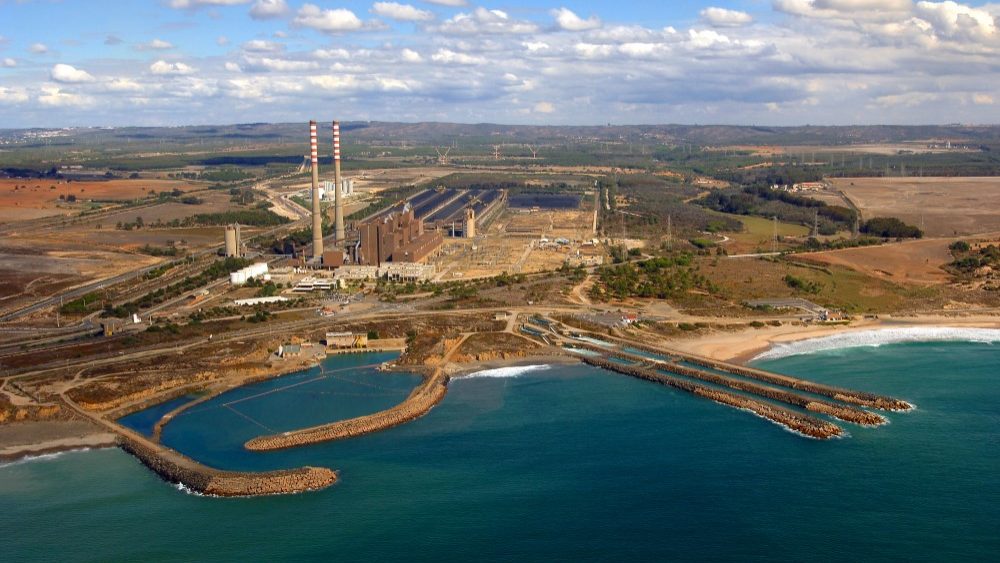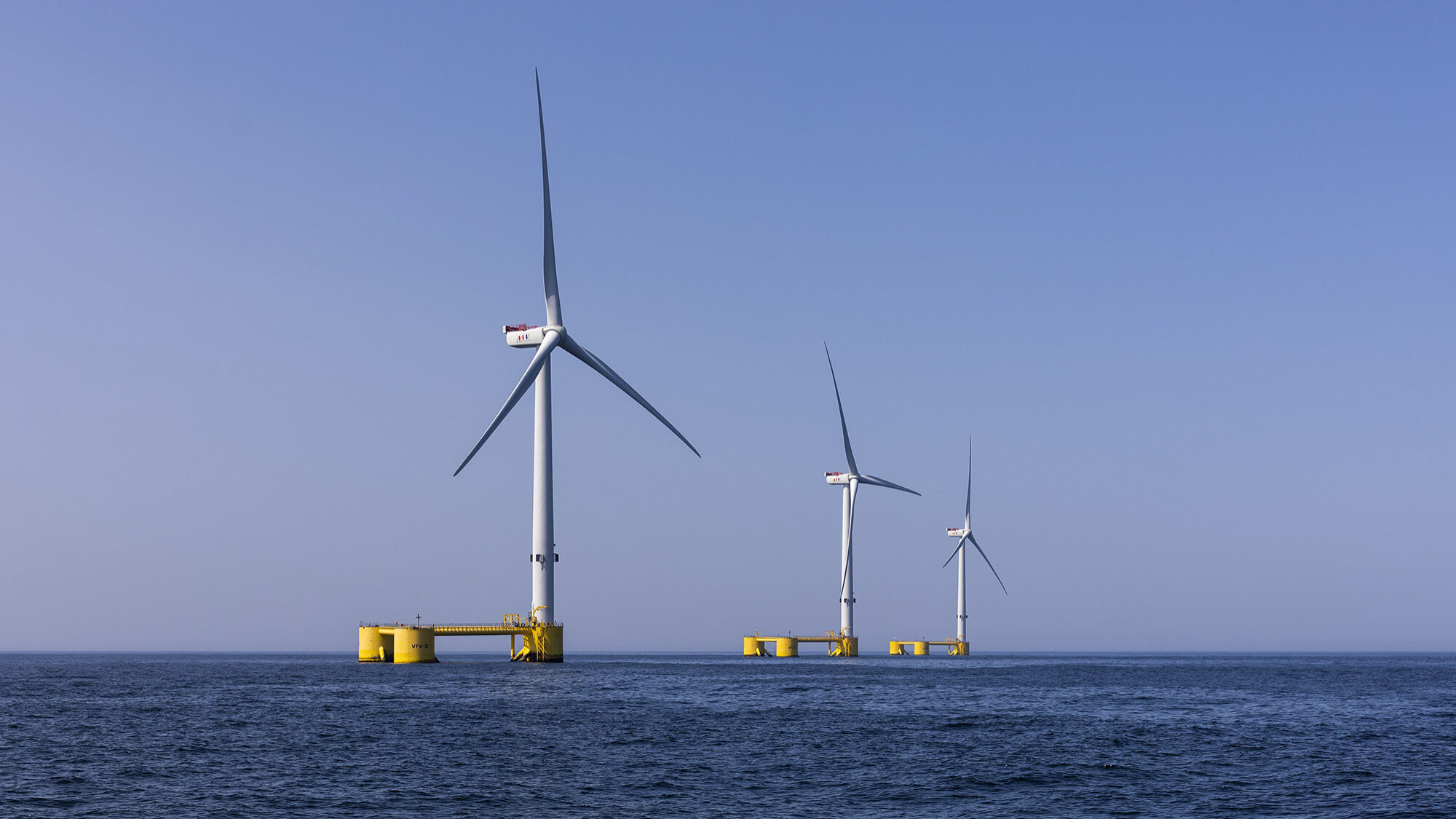Glennmont/BNZ: ‘We have plans for eight different projects in Portugal, ranging from 40 to 98 MW capacity’
The independent power producer confirms "ambitious plans" for Portugal, which include the construction of its first solar photovoltaic plant in the country's northern region later this year.
The growth potential of renewable energy in the coming years is very high and therefore very attractive for investors, even with rising interest rates.” This is the view of Luis Selva, managing director of BNZ/Glennmont Partners, an independent energy producer that develops and operates solar photovoltaic projects in southern Europe, and Jordi Franchesch, head of asset management and chief risk officer of asset manager Glennmont Partners.
As far as Portugal is concerned, the opinion is also optimistic, with businessmen considering the country as one of the countries with the greatest potential in the renewable energy sector in Europe, but they point out some challenges it still needs to overcome in order to stand out, namely in terms of the speed in granting administrative licences, an obstacle also seen in Spain and Italy.
The company has already received authorisation to move forward with its first solar photovoltaic plant in Portugal later this year, in the North region, and those responsible confirm in this interview “ambitious plans” for the country.

What are the major opportunities that exist by investing in solar energy in Portugal?
While Spain, Italy and Portugal (where BNZ is focused) have enormous possibilities, there are obvious differences between them. Portugal is one of the countries with the greatest potential in the renewable energy sector in Europe and has the conditions for optimal development in renewable energy. One of BNZ’s options in Portugal is to export the energy produced to external buyers interested in signing Power Purchase Agreements (PPAs), which would guarantee a predictable electricity price for the buyer of our electricity produced and sold in Portugal, generating stable returns for our investors.
In addition, PPAs allow us to increase the credit rating of our project due to the credit quality of the PPA counterparties, which could be Portuguese or international. The Portuguese industry has little tradition in signing these PPAs, but it is developing rapidly, so convincing them is one of our next big challenges.
Besides the great solar energy potential in Portugal, we have been building good relationships with important stakeholders. We are in contact with municipalities and parishes where we have established our local presence within each community, listening to local authorities and responding to their needs and concerns. As well as generating green energy and employment opportunities, our projects will also host public education visits and, where appropriate, contribute to initiatives funded by the local community. Each of our projects will be scrupulously designed to ensure that we go beyond ESG policies and support biodiversity, acting ethically in all aspects of BNZ business.
What are the main constraints and how could they be addressed?
As in Spain and Italy, administrative licensing in Portugal is too slow because of the large number of applications being submitted. In total, 35% of BNZ projects for the Portuguese market already have the approval of the Portuguese Environment Agency (APA), which is one of the crucial steps for large-scale projects.
Meeting this challenge implies making the entire bureaucratic process faster, both in Portugal and in the other countries in which we operate.
What stage are the projects under development by Glennmont /BNZ in Portugal?
We have ambitious and firm plans for Portugal. BNZ is constantly analysing and evaluating opportunities in the Portuguese market and plans to announce interesting projects in the future. Our current plans involve the development of eight different projects in Portugal, projects ranging from 40 to 98 MW capacity and are concentrated in the Central and Northern regions.
We recently announced the first of these projects where BNZ has been granted permission in the Northern Region of Portugal to start construction of a solar photovoltaic power plant in the intermunicipal community of Ave, with an installed capacity of 49 MWp. We expect the plant to be operational by the end of 2023.
What are the plans for the future? Is there a forecast for investment in Portugal in the coming years or a target in terms of MW?
We plan to start construction in the third quarter of this year and finish it in the fourth quarter of 2023. This will be the first BNZ plant to be built in Portugal, where we expect to install a capacity of approximately 400 MWp by 2024.
Will growth come mainly from the construction of new projects or from the acquisition of existing portfolios?
Our core business is mainly starting projects from scratch, but we don’t rule out the acquisition of existing projects to integrate them into our portfolio, as we have already done in Spain, with a 473 MW solar photovoltaic portfolio in the centre and south of the country.
What stage are the projects under development by Glennmont /BNZ in Portugal?
We have ambitious and firm plans for Portugal. BNZ is constantly analysing and evaluating opportunities in the Portuguese market and plans to announce interesting projects in the future. Our current plans involve the development of eight different projects in Portugal, projects ranging from 40 to 98 MW capacity and are concentrated in the Central and Northern regions.
We recently announced the first of these projects where BNZ has been granted permission in the Northern Region of Portugal to start construction of a solar photovoltaic power plant in the intermunicipal community of Ave, with an installed capacity of 49 MWp. We expect the plant to be operational by the end of 2023.
What are the plans for the future? Is there a forecast for investment in Portugal in the coming years or a target in terms of MW?
We plan to start construction in the third quarter of this year and finish it in the fourth quarter of 2023. This will be the first BNZ plant to be built in Portugal, where we expect to install a capacity of approximately 400 MWp by 2024.
Will growth come mainly from the construction of new projects or from the acquisition of existing portfolios?
Our core business is mainly starting projects from scratch, but we don’t rule out the acquisition of existing projects to integrate them into our portfolio, as we have already done in Spain, with a 473 MW solar photovoltaic portfolio in the centre and south of the country.
What is the impact of Europe’s geopolitical context and high energy prices on policies for the sector?
The invasion of Ukraine by Russia is having global geopolitical consequences. Volatility in commodity prices coupled with stress in global supply chains is creating a challenging landscape to operate in. European energy markets are determined by residual cost prices, and gas prices have driven the cost of electricity to unprecedented levels in recent months. Current prices are 4-5 times higher than the 2018-20 average.
Regarding our developing portfolio, this rising price environment confirms (even more) renewable energy as affordable, reliable and a guarantee for the energy independence of European countries. The long-term purchase structures offered in the market provide price security and a hedge against price volatility for end consumers.
What impact will rising interest rates have on the sector’s financing?
The climate emergency is driving governments, businesses and households to accelerate the energy transition to net zero. Given this and the high dependence of our economy on imported fossil fuels to generate electricity, transport and manufacturing, the growth potential of renewable energy in the coming years is very high and therefore very attractive to investors, even with this rise in interest rates.
Could the increased cost of photovoltaic panels and other inputs due to inflation and demand growth in Europe reduce the profitability of projects? Or will the higher costs be offset by selling the energy at higher prices?
The revenues of a project are not exclusively based on the costs of some components. As the European energy market is moving away from fossil fuels and the electrical stability of its power plants, energy market regulators are finding new uses for renewable energy projects beyond the obvious clean power generation, such as frequency regulation or reactive power. All of these generate various revenue streams that balance out market variations.

